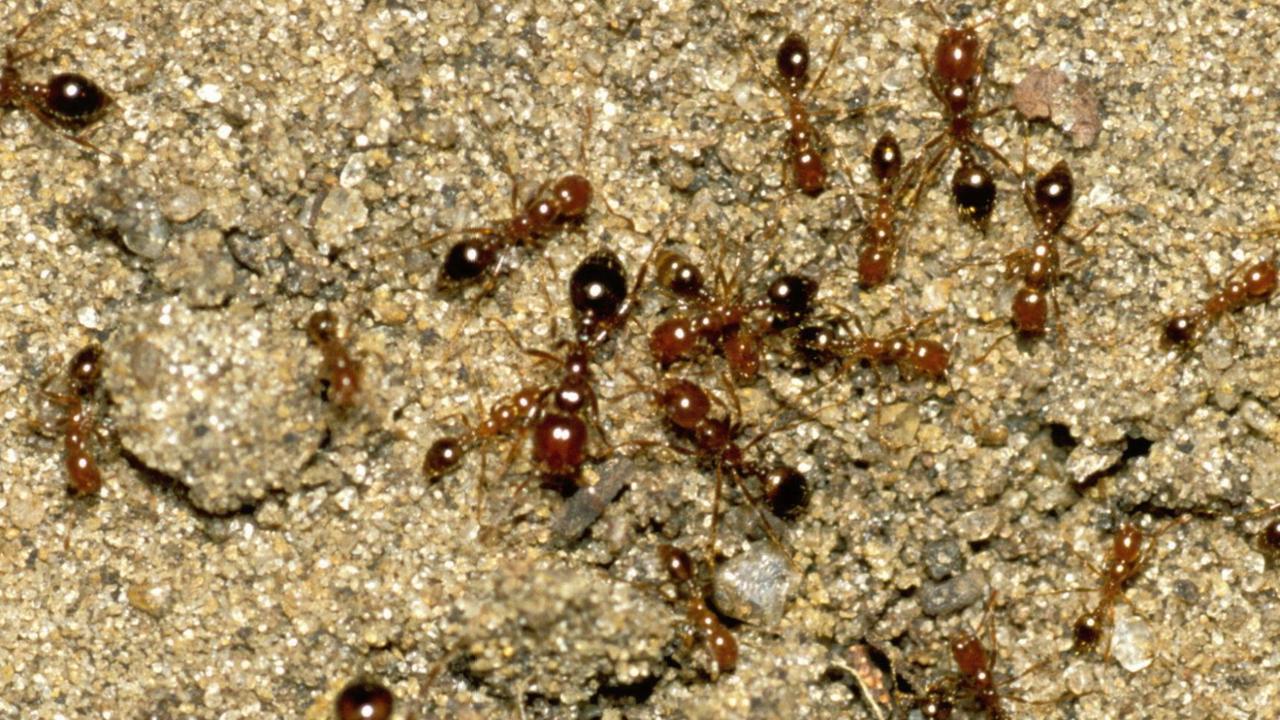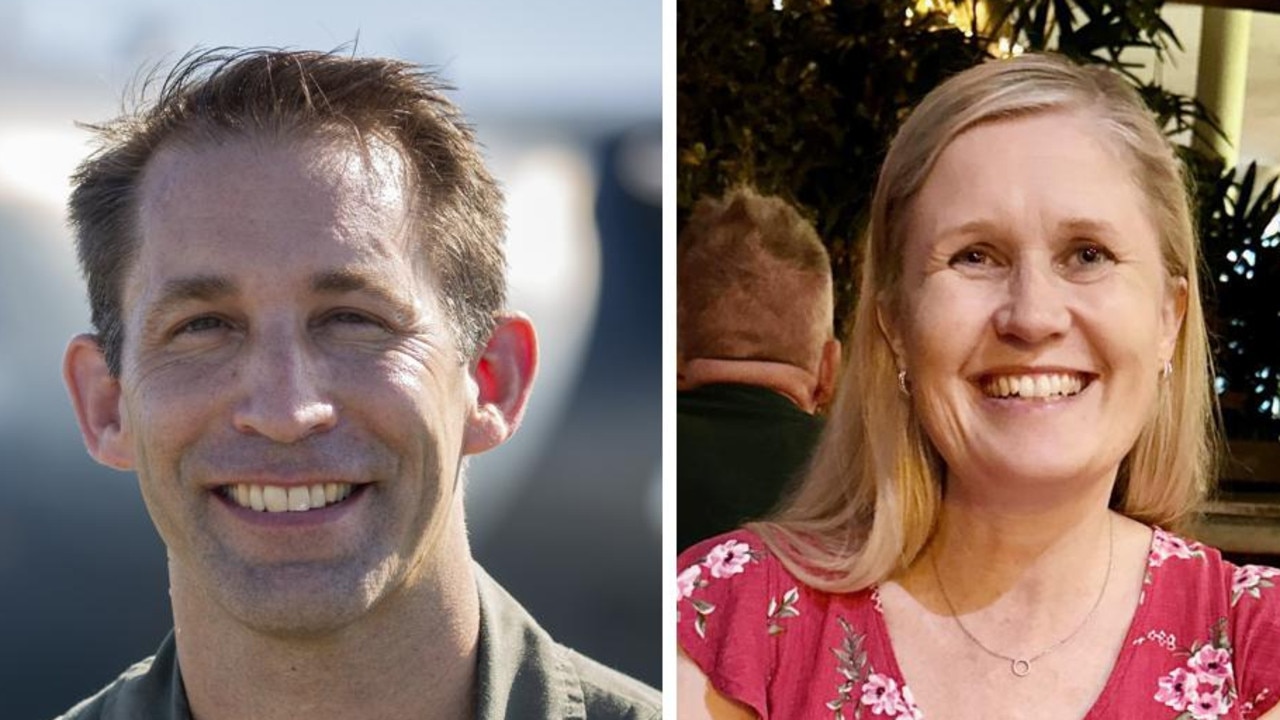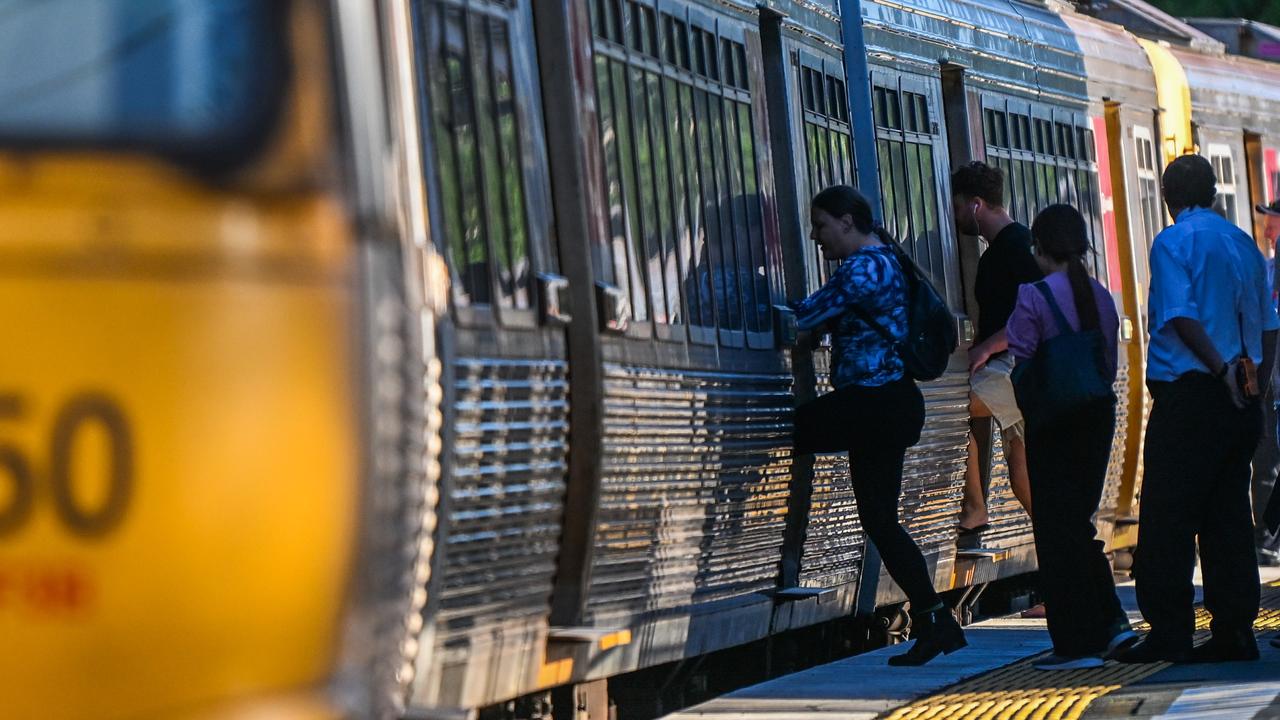Coronavirus Queensland: 'Care Army' volunteers wanted to help seniors
Queensland Premier Annastacia Palaszczuk wants volunteers to “adopt a senior” as the state ramps up efforts to protect its most vulnerable from the coronavirus.

It’s been more than nine years since Queenslanders donned gumboots and shovels to help those whose livelihoods were devastated by mud and floods, now Premier Annastacia Palaszczuk wants that spirit to return.
The state reported 40 more cases of coronavirus on Wednesday, bringing its total to 781. Nine patients are in intensive care.
During times of crisis, Queensland’s community spirit always shines through, as it did when the Mud Army went into action after the 2011 floods. If you’d like to volunteer to be part of the Care Army to support Queensland seniors, call the hotline: 1800 173 349. pic.twitter.com/awsk0ha6pM
— Annastacia Palaszczuk (@AnnastaciaMP) March 31, 2020
“Queensland’s community spirit always shines through in times of crisis, as it did when the Mud Army went into action after the 2011 floods,” Ms Palaszczuk said today.
“The Care Army may operate differently because of health and safety restrictions, but the spirit and effect remain the same.”
RELATED: Follow the latest coronavirus updates
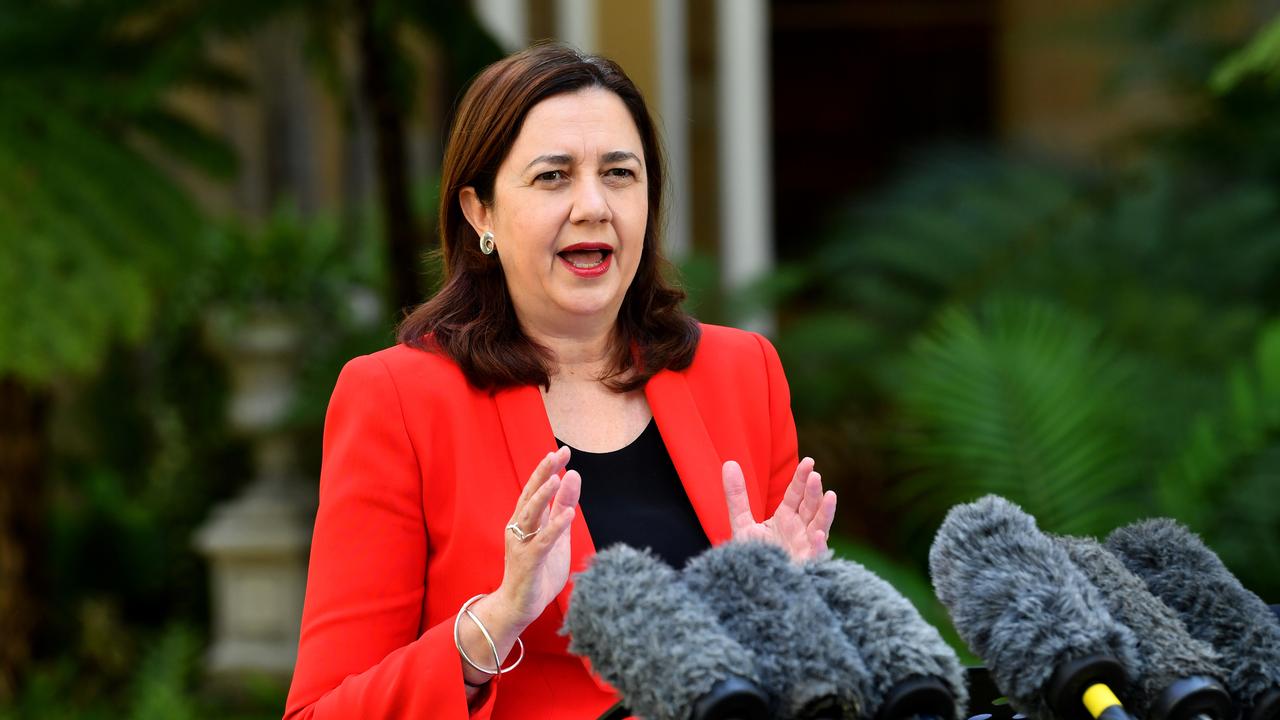
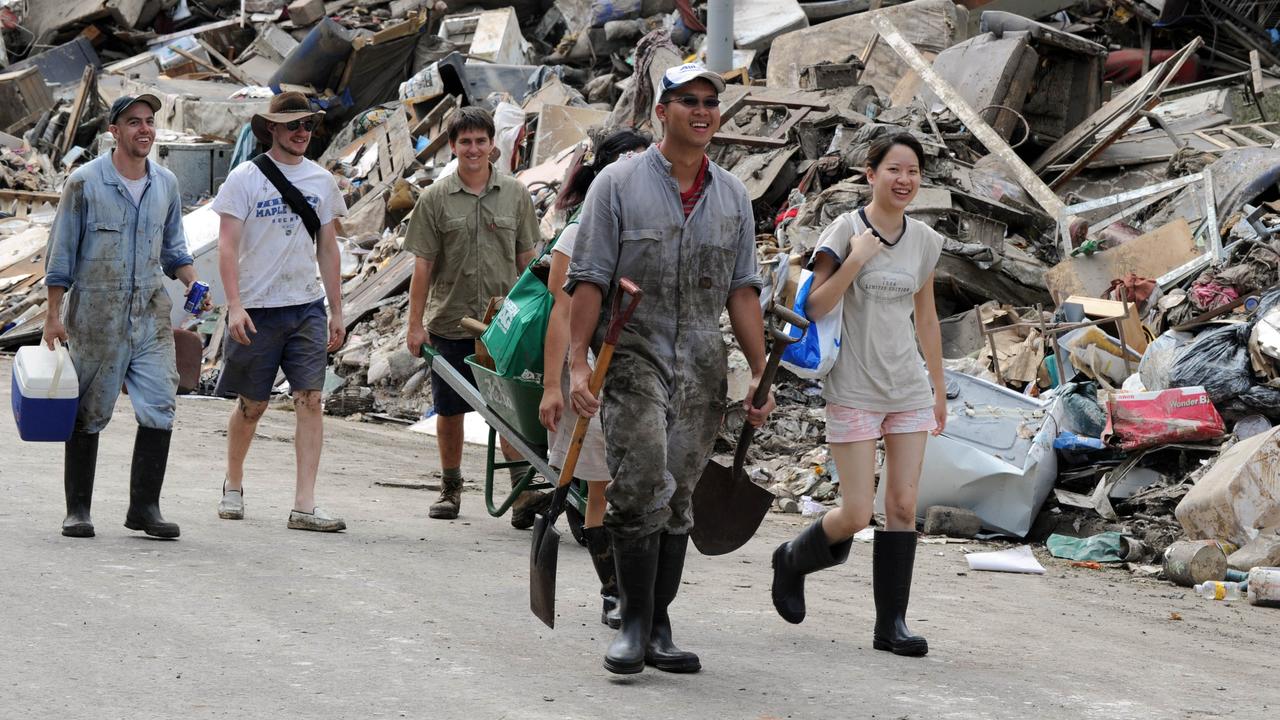
RELATED: Cases confirmed in every state and territory
The State Government today issued a call for volunteers to join the “Care Army” – a group of professionals and volunteers to rally around the most vulnerable during the coronavirus crisis, supporting residents aged over 65.
There have been 21 deaths nationwide as a result of the coronavirus including two in Queensland – a 77-year-old Sunshine Coast woman who became unwell on a flight to Sydney, and Ruby Princess cruise ship passenger Garry Kirstenfeldt, 68, from the Darling Downs.
Innovation Minister Kate Jones will chair the COVID-19 Seniors Panel co-ordinating the volunteer service.
“Whether it’s your mother, your grandfather, your next-door neighbour or a friend – we all know a senior in our community who will need us so they can stay safe from infection,” she said on Wednesday.
“If you don’t have family or friends in this age group who you can help, we still need you to step up and help those people who will be looking for it and you can do that by contacting our 1800 number.
“We’ll give clear advice to family members and friends about how to safely support seniors.”
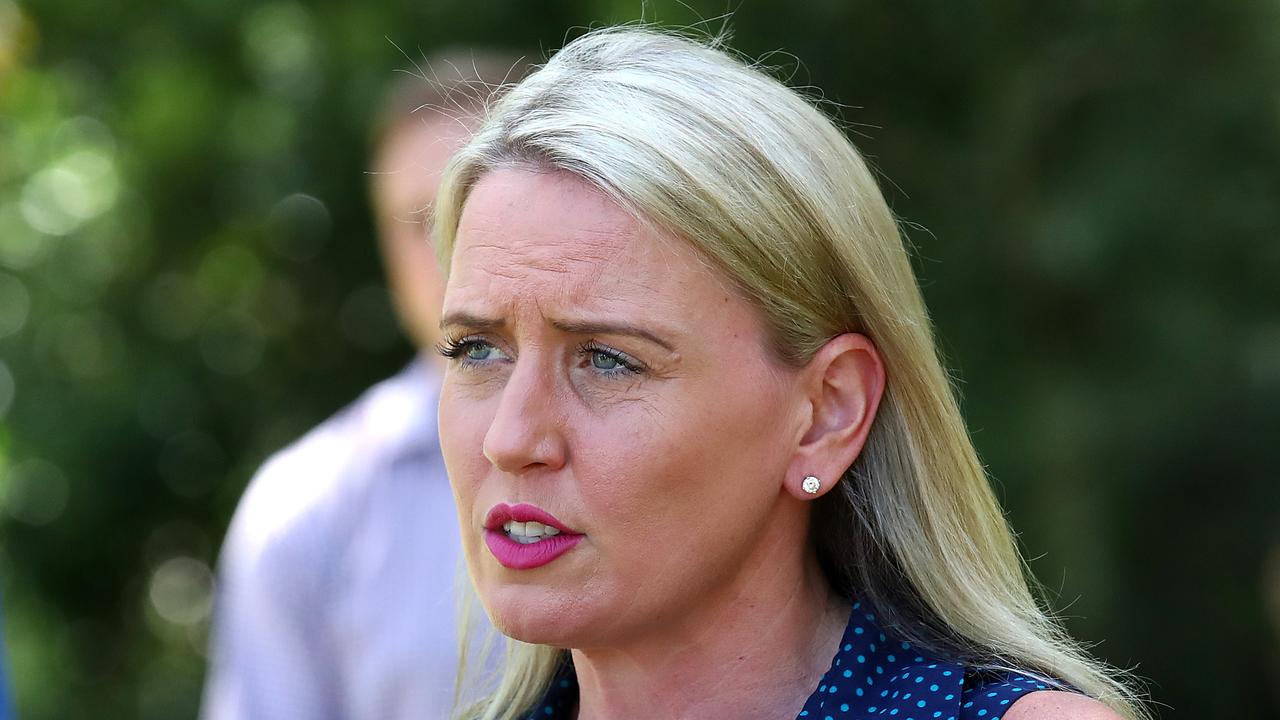
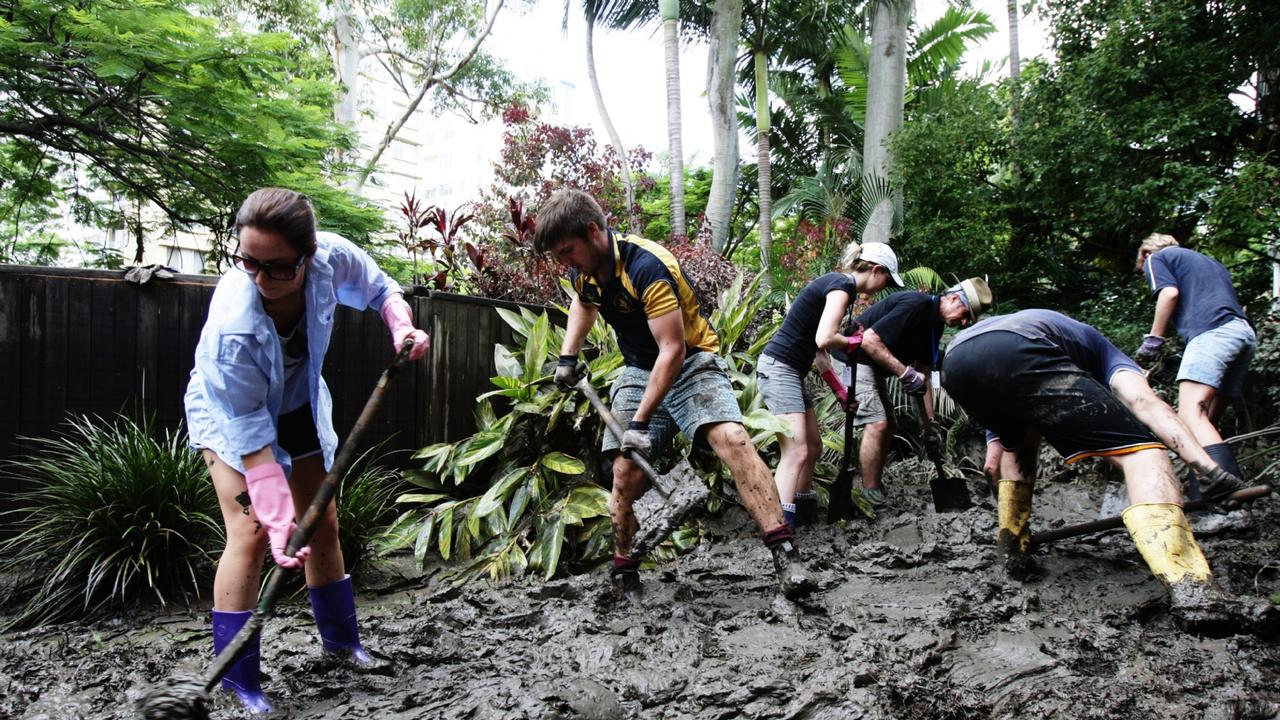
Ms Palaszczuk said the volunteer work, to “adopt a senior” or “support a senior in your suburb”, could include leaving things in their letterbox or collecting items such as scripts that need filling.
Ms Jones said: “Last time we had a crisis, we asked Queenslanders to put on their gumboots. Today, we’re asking Queenslanders to make a call.”
She said the state’s seniors “in the main” were doing the right thing.
“They’re listening to the advice and they’re staying home. What we need to ensure is that we are supporting seniors to stay in their own homes and to stay safe,” the minister said.
“Instead of driving your grandparent to the shops, get their list and do the grocery shop for them.”
The State Government also released a video of senior citizens staying at home, asking their friends, family and neighbours for a helping hand by checking in via phone or video and helping to buy groceries and medication.
“Queenslanders always help Queenslanders,” one man says.
Join our Care Army! Register: https://t.co/6rlLwAp6om or call: 1800 173 349 pic.twitter.com/cUSn2XS1La
— Annastacia Palaszczuk (@AnnastaciaMP) April 1, 2020
Earlier this week, following decisions made at the National Cabinet meeting, Queensland Chief Health Officer Dr Jeannette Young signed a Home Confinement Direction which applies to all residents in the state.
It directs people to stay at home except for essential purchases, medical or health care needs including providing care or assistance to an immediate family member or vulnerable person, exercise, and work or study if it cannot be done remotely.
Dr Young today said it “essentially put a border at the front of every single person’s door”.
“Those people who are particularly vulnerable and more likely to get complications really need to, as much as possible, stay home and accept help from others,” she said.
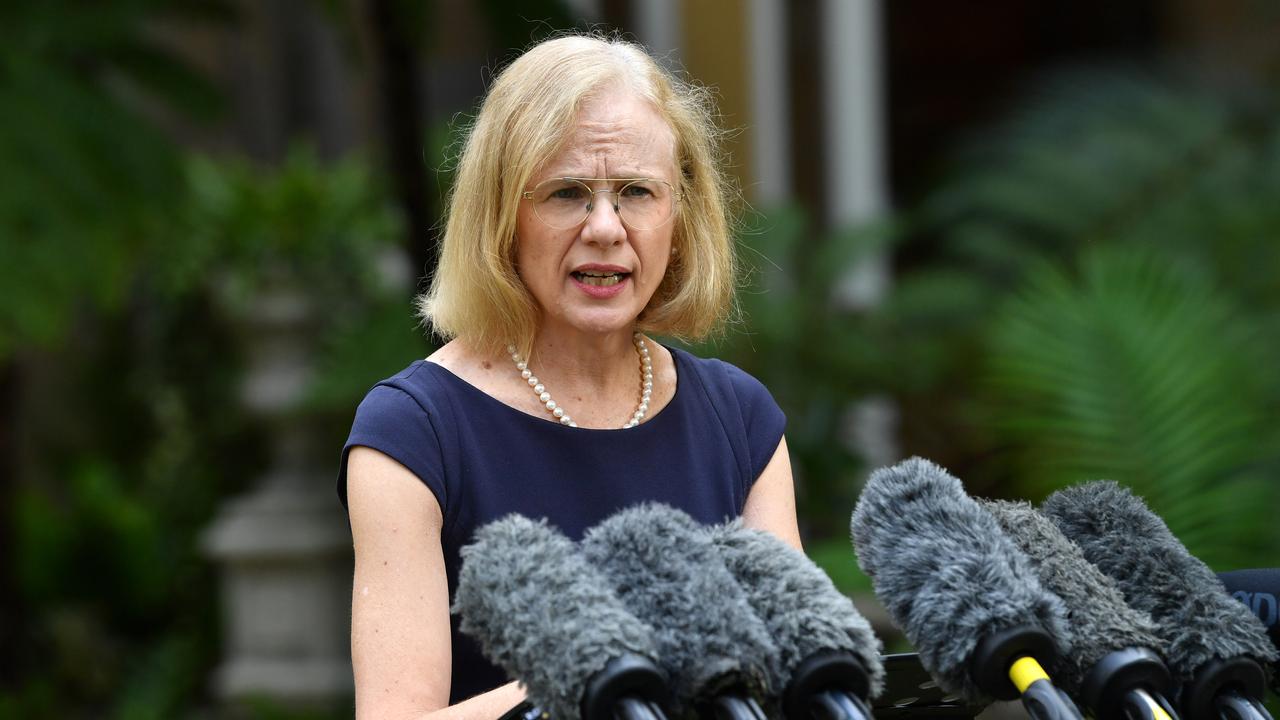
Dr Young said the “vulnerable group” encompasses people aged 65 or over with a chronic disease, all people aged 70 or over, and any Aboriginal or Torres Strait Island Queenslanders aged over 50, particularly those with one or more chronic disease.
“At the moment, they include uncontrolled hypertension (high blood pressure), uncontrolled diabetes, heart disease, lung disease or chronic kidney disease, particularly those on dialysis,” she said, noting the list is regularly reassessed.
She acknowledged that what is being asked of people at this stage is “really, really tough”.
“We’re humans, we need social interaction,” she said.
“We need to do this ... we know that if we don’t protect them, they’re the ones who are going to do really badly.”
Queenslanders wanting to volunteer can call 1800 173 349.

